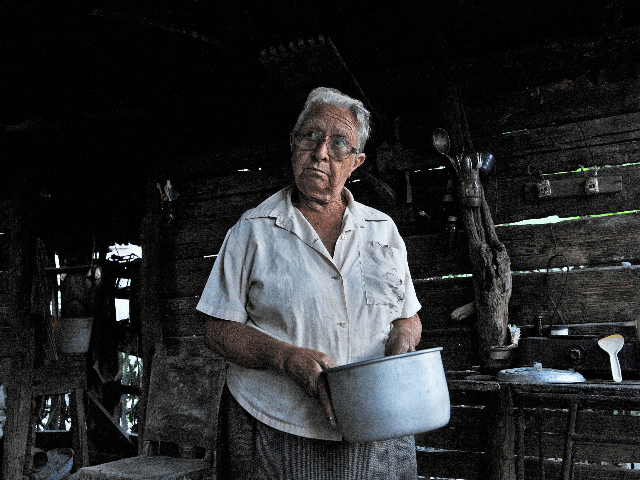The number of cases of the Chinese coronavirus in communist Cuba is continuing to rise as its population faces the pandemic without widespread access to hygienic essentials such as soap and clean water.
As of Monday afternoon, there were at least 40 confirmed cases of the virus across the island, two of whom are in critical condition, bringing it relatively in line with other Latin American countries. However, the dire state of the country’s economy and the lack of access to medical and hygienic essentials means it runs the risk of an aggressive outbreak that health authorities will struggle to contain.
A shortage of sanitary products, even in foreign currency stores where there is a far greater selection of products, has led to large queues of people outside the shops that offer them. Last month, Minister of Internal Trade Betsy Díaz Velázquez told the official Granma newspaper that shortages would last until at least April due to economic constraints. The shortages are unrelated to hoarding or coronavirus-related spending. Cubans still use ration cards for many basic goods.
The first case of the coronavirus in Cuba was reported on March 11, carried by three Italians who had arrived on the island two days earlier. One of those patients, a 61-year-old man who had a history of bronchial asthma, died seven days later after presenting “clinical manifestations of complications of the disease.”
According to the Cuban Health Ministry, in addition to the positive cases, 954 individuals are currently being held under epidemiological surveillance, 727 are Cubans and 528 are foreign citizens. A further 30,773 people are under regular surveillance in their homes.
Cuban officials will suspend tourism to the island from Tuesday, while citizens who return from abroad will be required to enter a two-week quarantine. The lockdown is scheduled to last 30 days but could be extended longer, and will undoubtedly inflict major damage on the country’s already struggling economy.
“This should enable us to stop (importing) cases and to focus on detecting those there are in the country and stopping transmission,” said Cuban second-in-command, President Miguel Diaz-Canel, in a television address on Sunday.
He also called on citizens to practice social distancing, something he said would naturally go against the nature of the Cuban people.
“Something very difficult due to Cubans’ nature, but very necessary, is the elimination of effusive greetings,” he said. “No kisses or hugs and greetings at a prudent distance until the epidemic passes by.”
Despite the brewing crisis in their own country, communist authorities are nevertheless continuing the tradition of sending their slave doctors abroad, with teams already arriving in their crisis-hit ally Venezuela and Italy, the country with the most severe outbreak globally.
Supporters of the Cuban regime have long touted its supposedly high standards of health care, citing the fact that the country has the highest relative number of physicians in the entire world as well as the manipulation of health statistics such as infant mortality. However, the poverty inflicted as a result of decades of communist policy has, in reality, led to a decrepit health system with some of the worst health outcomes worldwide.
Follow Ben Kew on Facebook, Twitter at @ben_kew, or email him at bkew@breitbart.com.

COMMENTS
Please let us know if you're having issues with commenting.